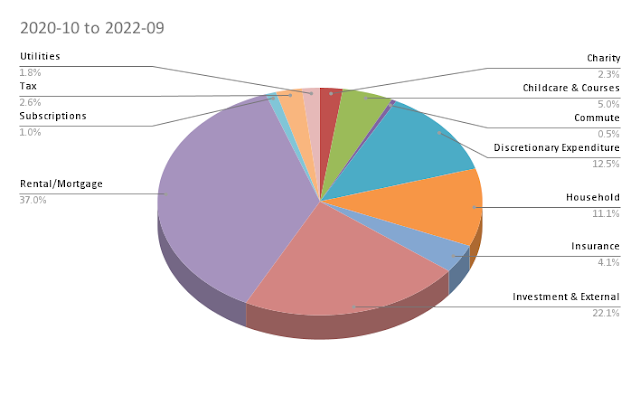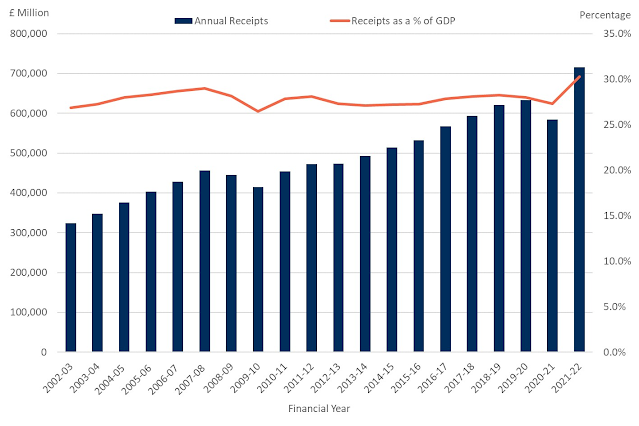Follow up to post of Affordability of Housing
Last month, I wrote a post on affordability of homes in the UK. While it was largely well received, I have received 2 sets of comments from readers - (a) Interest rates aren't fixed and (b) value of prepayments being higher in 1990, both of which are to-the-point. So I decided to mention and elaborate on both of them.
Interest costs aren't fixed
The primary basis of comparing affordability between 1990 and 2020 was to use mortgage payments as a ratio of income. Obviously, mortgage payments don't stay flat, they change over time, as interest rates change and you are able to renegotiate terms with your lenders.
In the post, I take two reference points for interest rates : 14.575% in 1990 and 2.615% in 2020. Obviously, for anyone who bought a property in 1990 and used 5 year fixed loans, they probably got to refinance their loans at lower rates. Based on data from this page, I estimate that the interest rates would have looked like this:
We can do the opposite too. Let's assume that interest rate will rise from 2.615% (present day) to 14.575% by 2050, the same interest rate as in 1990. Would such a reversal happen? I don't know and I can't predict. For the purposes of risk management, however, there is no harm is projecting such an increase and see what happens.
Assuming that you are forced to refinance every 5 years (the maximum fixed rate home loans available in the UK right now), and interest rates were to go up in a straight line fashion for the next 25 years, your mortgage would look something like this at each loan renewal:
This indicates that while interest rate increase will affect your mortgage, the effective interest rate you would pay would still be weighed downwards due to the lower interest you pay in the earlier years.
Value of Prepayments in 1990 vs 2020
If you have spare cash, it makes prudent sense to return some of it to the bank and get a discount in future interest payments. When doing so, you benefit a lot more when your interest rates are high vs when interest rates are low. This is very much the case comparing 1990 to 2020. This makes buying a house in 1990 more appealing than buying in 2020.
This is obviously not contestable. (If anyone finds a way to contest this argument, please drop a comment, as I am interested in that angle.)
Risk Mitigation
Given that interest rates are as low as they are at the moment, what can you do about the possible risk of run away interest rate hikes in future?
Here are a two recommendations
- Take as long a fixed rate home loan as you can - say 5 years. This way, you can reduce the risk of interest rate increases till later. 5 year fixed-interest rates are higher than 2 year rates, by about 0.3% or so. This means you pay higher today, in the hope that if interest rates go up, you gain something back. At the very least, you have to only lose sleep 5 times in your life and not 15 times, if you chose to only take 2 year renewals.
- Keep cash in hand to repay if needed. While you may choose not to repay your home loan sooner (since the benefit of doing so is so low), you should still accumulate cash. In the off chance that interest rates have gone up when you need to renew, the extra cash can be used to reduce the new loan principal, hopefully keeping your monthly go about the same as before.
Where does this leave us?
The point of the exercise in my previous post was not to say that 1990 vs 2020 is some sort of an even battle. It is not. The point was to say that affordability of homes should be compared based on how much your outflows are, for which interest rate is a huge component. If that is the case, then it makes sense that people will be willing to pay much higher multiples of their incomes to buying a house in 2020 than they did in 1990.
If I had an option to buy a property with interest rates being 14.575% and the prices being rock bottom, I would, of course prefer to take it compared to where we were. However, we don't have that choice. If we don't have that choice, then we need to ascertain whether it makes sense to buy at current prices or not. As mentioned in the original post as well as in the calculations above, so long as interest rates remained under control and you can put down the deposit, it would make sense to buy a property, at least to live in one.
Disclaimer: Anything mentioned in this post should not be considered financial advice. The post should be consumed purely for entertainment and educational purposes.



Comments
If possible could you also comment on why you think interest rates are even rising when it is complete fact the current wave of inflation is supply side driven?
Banks are making huge profits, for no reason whatsoever other than they have obviously infiltrated govement.